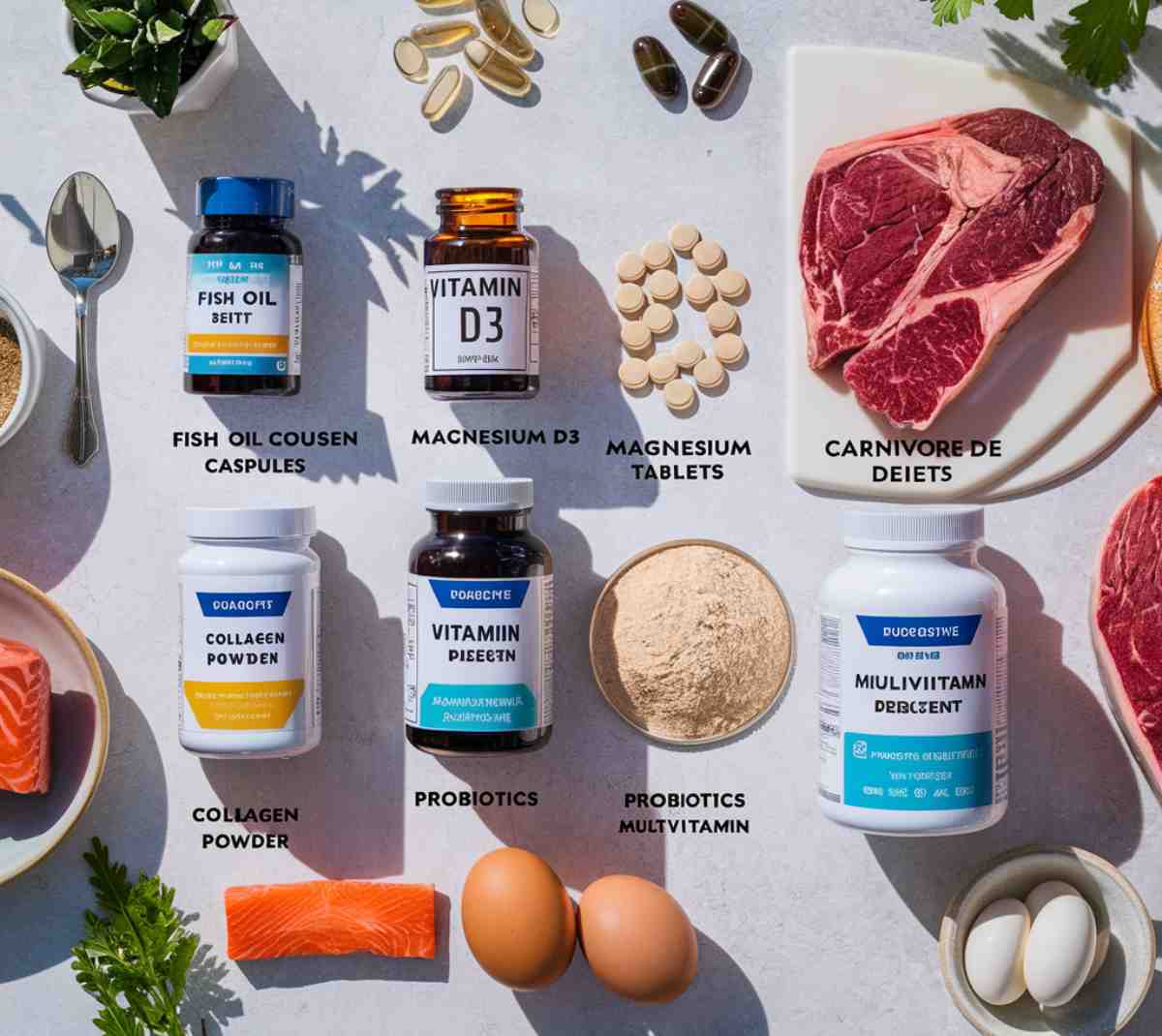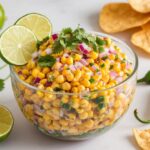The carnivore diet, characterized by its exclusive focus on animal-based foods, offers a range of potential health benefits. However, its restrictive nature can lead to nutritional gaps that supplementation needs to address. This article explores the top supplements recommended for individuals following a carnivore diet, detailing their benefits, the reasons for their necessity, and guidance on selecting the most suitable ones.
What is the Carnivore Diet?
The carnivore diet is a highly restrictive nutritional plan involving only animal products, including meat, fish, and eggs. It excludes all plant-based foods like fruits, vegetables, grains, and legumes. Proponents of the carnivore diet argue that it can lead to various health advantages, including weight loss, improved mental clarity, and reduced inflammation. However, the diet’s exclusion of plant-based foods can pose significant challenges.
Nutritional Challenges on the Carnivore Diet
Despite its potential benefits, the carnivore diet presents several nutritional challenges. Individuals may miss out on essential nutrients typically found in fruits, vegetables, and whole grains by excluding plant-based foods. Important nutrients that might be lacking include vitamins, minerals, and fiber, all crucial for optimal health. These deficiencies can impact various aspects of health, necessitating careful consideration of supplementation.
Top 12 Best Supplements for the Carnivore Diet
Incorporating specific supplements can be highly beneficial to address potential nutritional gaps and support overall well-being on a carnivore diet. Below are the top 12 supplements recommended for individuals following this diet, each offering unique benefits to enhance health and vitality.
1. Omega-3 Fatty Acids
Importance of Omega-3s
Omega-3 fatty acids, like EPA and DHA, are important for preserving heart health & brain function and decreasing inflammation. While fatty fish like salmon are superb sources of omega-3s, the amount consumed may not always be sufficient to meet the body’s needs. Inadequate intake of omega-3s can lead to imbalances in inflammation levels and negatively impact cardiovascular health.
Recommended Supplements
- Fish Oil: High-quality fish oil supplements are a concentrated source of omega-3s, supporting overall heart and brain health. Opt for products that are external-party tested to ensure purity and free from contaminants.
- Krill Oil: Known for potentially better absorption and additional antioxidant benefits than fish oil. Krill oil contains phospholipids that enhance the bioavailability of omega-3s, making it a valuable addition to your supplement regimen.
2. Vitamin D
Why Vitamin D Matters
Vitamin D is important for healthy bones, immune function, and well-being. It is found in limited amounts in animal products and synthesized through sunlight exposure. Given the potential for insufficient sunlight exposure and dietary sources, supplementation can help maintain optimal vitamin D levels. Low vitamin D levels can lead to weakened bones and impaired immune response, which are critical to address.
Recommended Supplement
- Vitamin D3 is the most effective vitamin D supplementation for supporting bone health and immune function. Vitamin D3 is more potent and better utilized by the body than other forms, making it a preferred choice.
3. Magnesium
The Role of Magnesium
Magnesium supports muscle & nerve function, blood sugar regulation, and bone health. It is commonly found in plant-based foods excluded from the carnivore diet. Without adequate magnesium intake, individuals may experience muscle cramps, fatigue, and issues with blood sugar control. Supplementing with magnesium can help address these concerns.
Recommended Supplement
- Magnesium Glycinate: Known for its high absorbability and gentle effect on the digestive system. Magnesium glycinate is a suitable choice for overall health support and is less likely to cause gastrointestinal discomfort than other forms of magnesium.
4. Vitamin K2
Benefits of Vitamin K2
Vitamin K2 is important for bone health & cardiovascular function, aiding calcium metabolism regulation. It is present in fermented foods and certain animal products but might be inadequate on a strict carnivore diet. Ensuring sufficient vitamin K2 intake is crucial for maintaining proper calcium balance.
Recommended Supplement
- MK-7: A extremely bioavailable form of vitamin K2 that supports bone and cardiovascular health. MK-7 has a longer half-life in the body, providing sustained benefits compared to other forms of vitamin K2.
5. Electrolytes
Why Electrolytes are Necessary
Electrolytes, including sodium, potassium, and calcium, are vital for fluid balance, nerve function, & muscle contractions. Changes in hydration and sodium intake can cause electrolyte imbalances on a carnivore diet, and proper electrolyte levels are essential to prevent dehydration and muscle cramps.
Recommended Supplement
- Electrolyte Powders: Balanced mixtures of essential electrolytes can help support hydration and overall health. Choose products free from added sugars & artificial ingredients to ensure clean, practical support.
6. Collagen
The Importance of Collagen
Collagen supports joint health, skin elasticity, and gut integrity. Although collagen is found in animal products, supplementation can provide additional support, mainly if these foods are not consumed regularly. Collagen supplements can help maintain healthy skin, reduce joint pain, and improve gut health.
Recommended Supplement
- Hydrolyzed Collagen: Easily absorbed and beneficial for skin, joint, and gut health. Hydrolyzed collagen can be mixed into beverages or foods, making it a convenient way to boost collagen intake.
7. Multivitamins
Role of Multivitamins
Multivitamins can help fill nutritional gaps caused by the restrictive nature of the carnivore diet. They offer a broad spectrum of vitamins & minerals that may be lacking in the diet. A high-quality multivitamin ensures adequate nutrient intake for overall health and energy.
Recommended Supplement
- High-Quality Multivitamins: Select a multivitamin with a comprehensive range of vitamins and minerals to meet specific nutritional needs. This helps prevent deficiencies and supports overall well-being.
8. Probiotics
Why Probiotics are Beneficial
Probiotics support gut health by promoting a balanced microbiome, which is important for digestion and immune function. Although the carnivore diet excludes many prebiotic foods, probiotics can help keep up gut health and improve digestion. A healthy gut microbiome is important for vitamin absorption and immune support.
Recommended Supplement
- High-Potency Probiotics: Look for probiotics with multiple strains and a high CFU (colony-forming units) count to support a healthy gut microbiome. This can enhance digestion & overall gut health.
9. Vitamin B Complex
Benefits of Vitamin B Complex
B vitamins are essential for energy production, cognitive function, and overall metabolic health. They are present in various animal products but may still require supplementation for optimal levels. A B complex supplement supports energy levels, mental clarity, and metabolic processes.
Recommended Supplement
- Vitamin B Complex: A well-balanced B complex supplement provides all essential B vitamins, supporting overall health and energy levels. It helps maintain healthy skin, hair, and nervous system function.
10. Zinc
The Role of Zinc
Zinc is important for immune function, wound recovery, and protein synthesis. Although it is found in meat, the levels might sometimes be adequate, especially with dietary restrictions. Zinc deficiency can impair immune response and delay wound healing.
Recommended Supplement
- Zinc Picolinate: Known for its high bioavailability and effective absorption, it is a good choice for maintaining adequate zinc levels. Zinc picolinate is well-absorbed and gentle on the digestive system.
11. Iodine
Importance of Iodine
Iodine is essential for thyroid health and hormone production. While seafood is a good source of iodine, it may need to be consumed in sufficient quantities on a carnivore diet. Adequate iodine levels are crucial for maintaining healthy thyroid function and metabolic rate.
Recommended Supplement
- Potassium Iodide is a reliable iodine supplementation that supports thyroid function and overall health. It helps prevent iodine deficiency and supports hormone production.
12. Vitamin C
Why Vitamin C is Important
Vitamin C is vital for immune function, skin health, and antioxidant protection. It is commonly found in fruits and vegetables excluded from the carnivore diet. Supplementing with vitamin C can help support immune health and protect against oxidative stress.
Recommended Supplement
- Vitamin C: A high-quality vitamin C supplement can help fill the nutritional gap and support overall immune health and skin integrity. It provides antioxidant protection and aids in collagen synthesis.
How to Create Your Custom Supplement Routine
Assess Your Nutritional Needs
Creating a custom supplement routine begins with understanding your specific nutritional needs. Evaluate your diet to identify any deficiencies or gaps that require supplementation. Consider age, gender, activity level, and any underlying health conditions affecting your nutrient requirements.
Consult with a Healthcare Professional
Prior to beginning any new supplement regimen, it’s important to consult with a healthcare professional or nutritionist. They can provide personalized suggestions founded on your health status and dietary restrictions. This ensures that your supplement choices are tailored to your needs and complement your overall health plan.
Choose High-Quality Supplements
When selecting supplements, prioritize high-quality products from reputable brands. Look for third-party supplements tested for purity and potency to ensure you get effective and safe products. Avoid supplements with unnecessary fillers, additives, or artificial ingredients.
Follow Recommended Dosages
Adhere to the recommended dosages as specified on the supplement labels or as your healthcare provider advises. Some supplements may be best taken with meals, while others are more efficient on an empty stomach. Proper timing and dosage can enhance the absorption and effectiveness of the supplements.
Monitor Your Health and Adjust as Needed
Monitor your health and any changes you experience after starting your regular supplement routine. Adjust your supplement regimen accordingly if you notice any adverse effects or if your health goals shift. Ongoing evaluation helps ensure that your routine remains effective and aligned with your health objectives.
Conclusion
Maintaining optimal health on a carnivore diet requires careful attention to nutritional needs, particularly regarding supplementation. The top supplements listed in this article can help address potential deficiencies and support overall well-being. By understanding the specific benefits of each supplement and creating a custom supplement routine tailored to your individual needs, you can enhance the benefits of the carnivore diet while ensuring balanced nutrition. Always consult a healthcare professional to refine your supplement choices and achieve the best results for your health.

















